Food and Agriculture
Organic Food
We grow together, cook together and eat together!
We are learning about “food” through the production and natural practice of farming rice, vegetables and herbs.
Baharam, met Professor Shigeru Yasuda, an emeritus professor at Kobe University, after experiencing allergies as a child, and learned about pesticide-free rice and vegetable growing. In order to create a safe food and environment with our own hands, we have been working with Japanese and foreign members in OZO-cho, Kita-ku, and Kobe since 2009, while also making the best use of fallow fields, rice, vegetables and herbs. We have a year-round schedule for regenerating fallow fields, leveling soil, making blurs, planting rice, growing vegetables, caring for herbs, and harvesting rice. We harvest carefully grown vegetables, rice, and herbs, and cook together using the “Kamado” at the OZO base. People from various countries also experience cultural exchanges through food while sharing local dishes from each country.
Soil preparation is achieved by regenerating fallow fields, growing rice, vegetables and herbs without using pesticides, fermenting and blurring fertilizer. We also use bamboo powder, which is a local by-product of cutting and powdering bamboo. By not using pesticides, we aim to protect creatures in the rice fields and fields and conserve biodiversity. Food preparation begins with soil preparation, and we learn about the circulation of food by making our own safe food and cooking the food we make in Kamado using thinned wood from the forest.
Revitalizing unused fields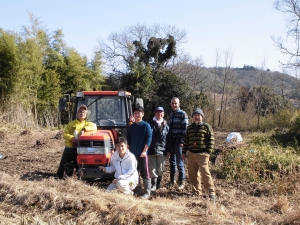 | 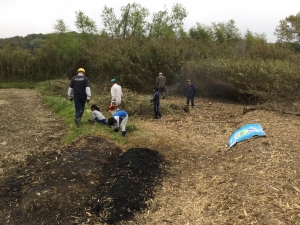 |
Planting rice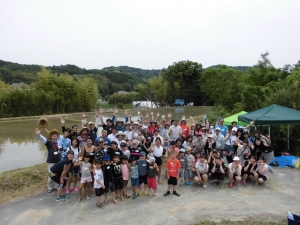 | 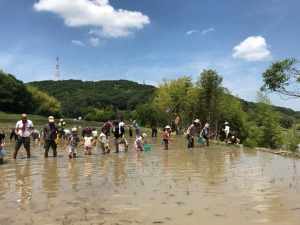 |
Harvesting onions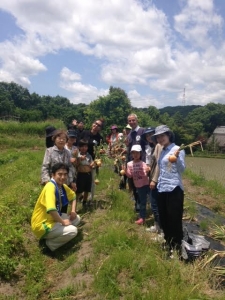 | Creating “bokashi” fertilizer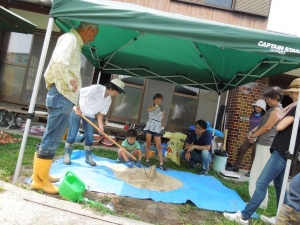 | Vegetable gardening classes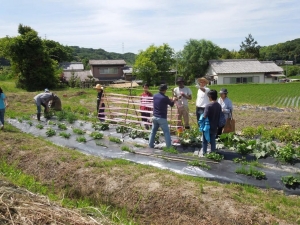 |
Harvest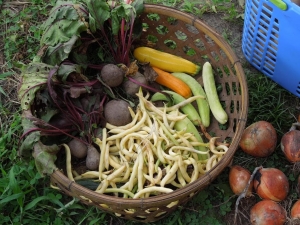 | Cooking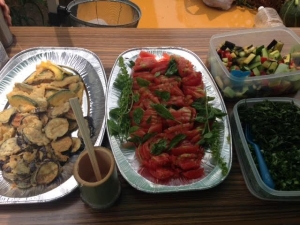 |
Rice harvest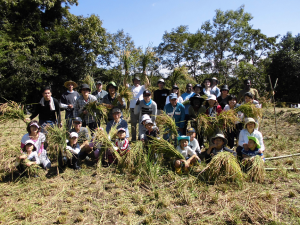 | 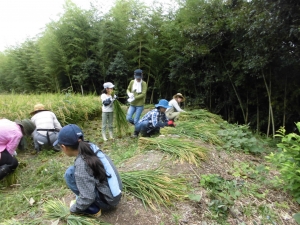 | 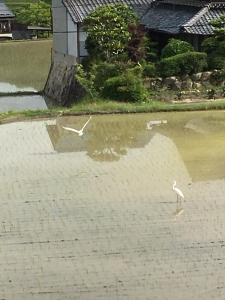 |
Click here for activity reports on Organic Food
Herb Garden
The Peace & Nature Herb Garden Project is off to a great start!
We began by leveling this land that had been abandoned for many years and was in very poor condition. Our members and volunteers worked very hard to make this possible.
We hope to build this herb garden with help from all of you. We hold fun herb events where we plant herbs, weed, and water together, as well as learning how to incorporate herbs into our everyday lives.
For our first event, we planted chamomile seeds and a variety of herb seedlings. The children helped us plant an olive tree, our symbol tree. The olive flower symbolizes peace – perfect for Peace & Nature, right? This olive tree will watch over our herb garden from now on.
Upcoming events:
-Making mint bug spray
-Making herbal soap
-Afternoon tea with fresh herbs
-Simple herb recipes from around the world
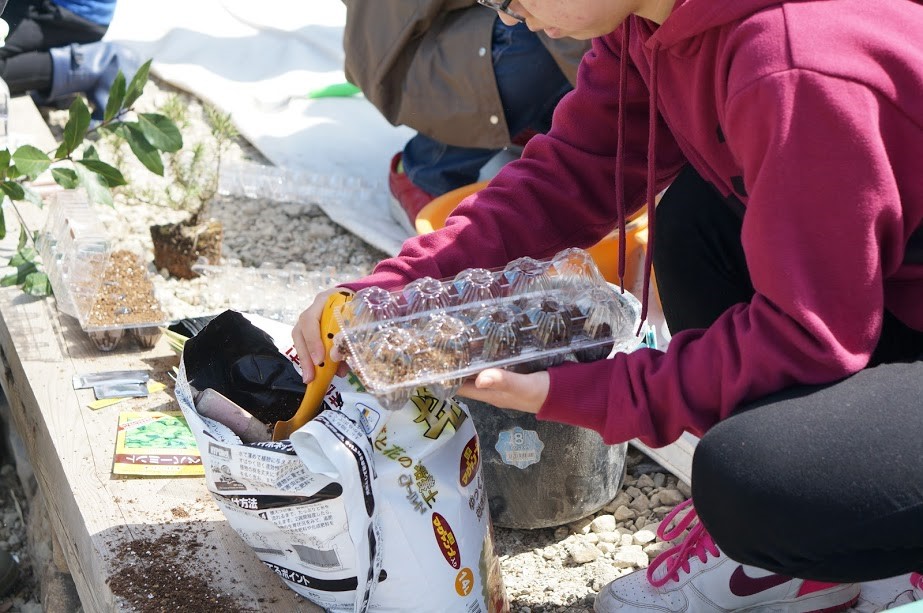 | 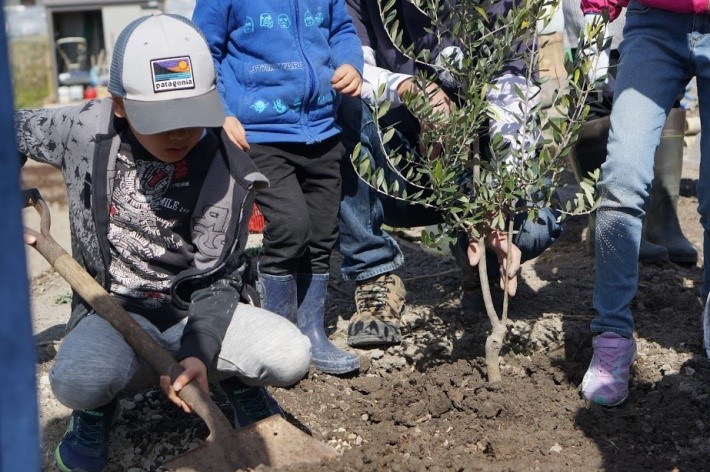 | 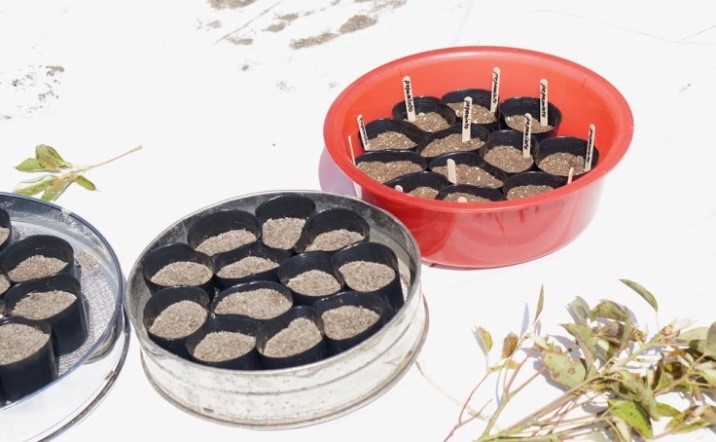 |
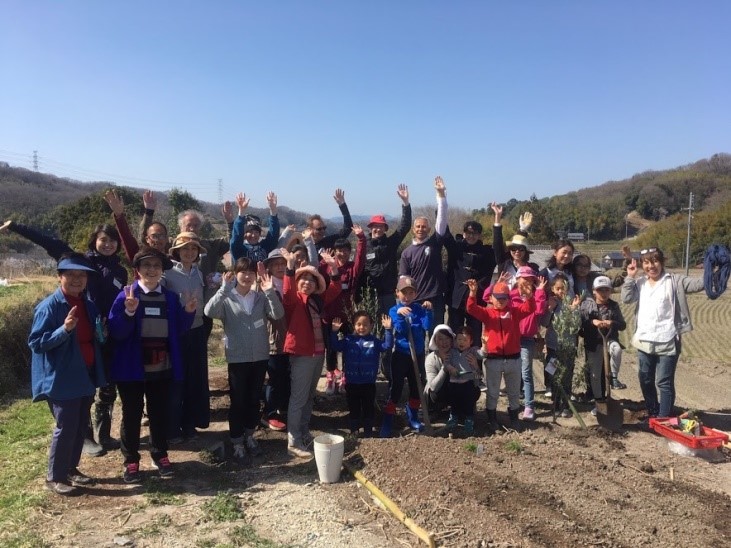 | 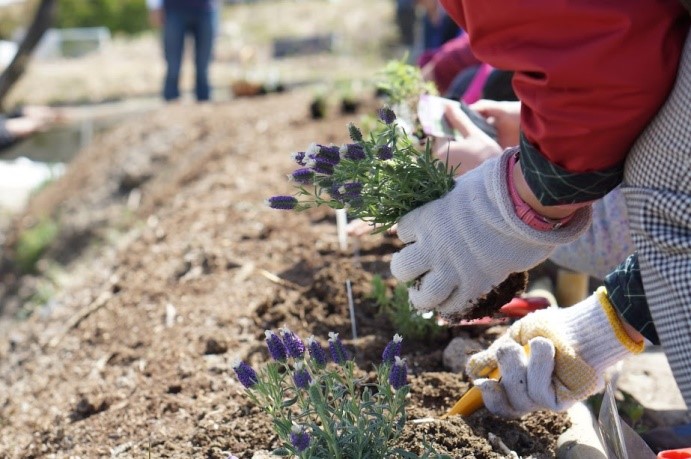 |
Click here for activity reports on Herb Garden
Environment
Green Energy
Renewable energy refers to energy resources that exist perpetually in the natural world, including solar, wind, geothermal, and biomass power. Unlike fossil fuels such as oil, coal, and natural gas, renewable energy is reusable and gentle on the environment. These sources of alternative energy are gaining attention worldwide.
We created an “Aino Kamado” (traditional Japanese wood stove) at our Ozo Base with instruction from specialists from Aoyama-cho, Mie Prefecture. This energy-efficient stove can do a lot of cooking with a small amount of fuel. Instead of gas, we cook using discarded wood from the farmhouse renovation and thinned lumber from our forest revitalization activities.
Next, we plan to supply 100% of the electricity used at the Ozo Base with renewable natural energy. We invite you to participate in our renewable energy project.
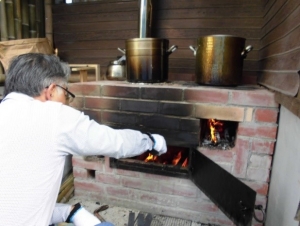 | 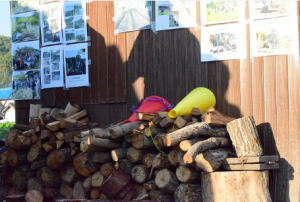 | 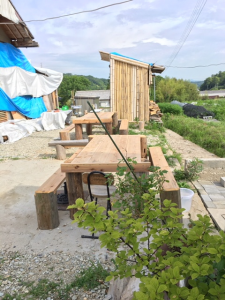 |
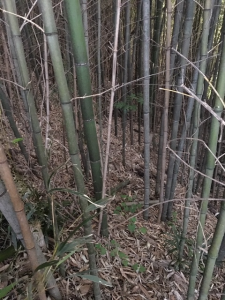 | 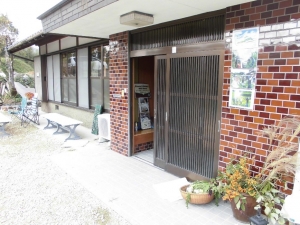 | 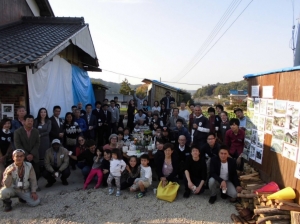 |
Click here for activity reports on Green Energy
Mountain Activity
Peace & Nature is working to revitalize the forest on Mt. Rokko as part of our mission to protect the earth’s environment. Our work area is near the peak of Mt. Kinchozan, adjacent to the hiking path connecting Hokura Shrine and Kazafukiiwa.
Throughout the year, we plant Japanese cherry, maple, and chestnut trees, cut back undergrowth, trim shrubs, and capture and survey harmful insects. Experience these activities to learn about forest revitalization philosophy and techniques, as well as enjoying the refreshing sensation of working in this negative ion-filled forest!
Planting saplings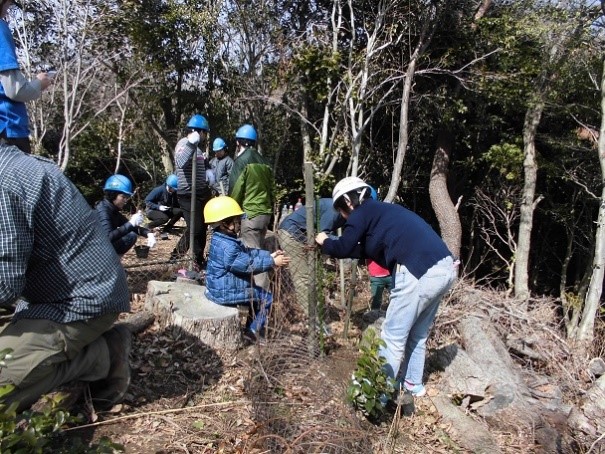 | 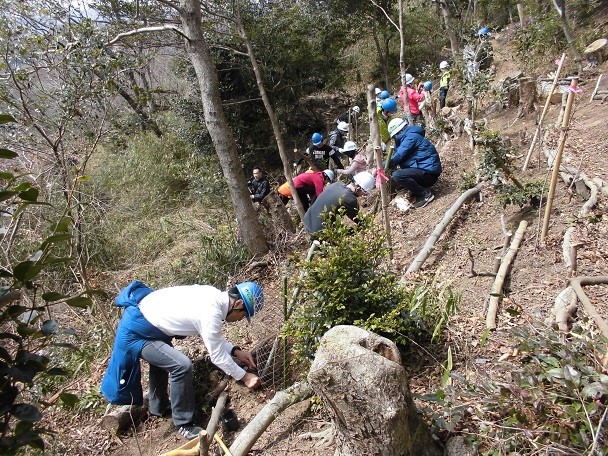 | 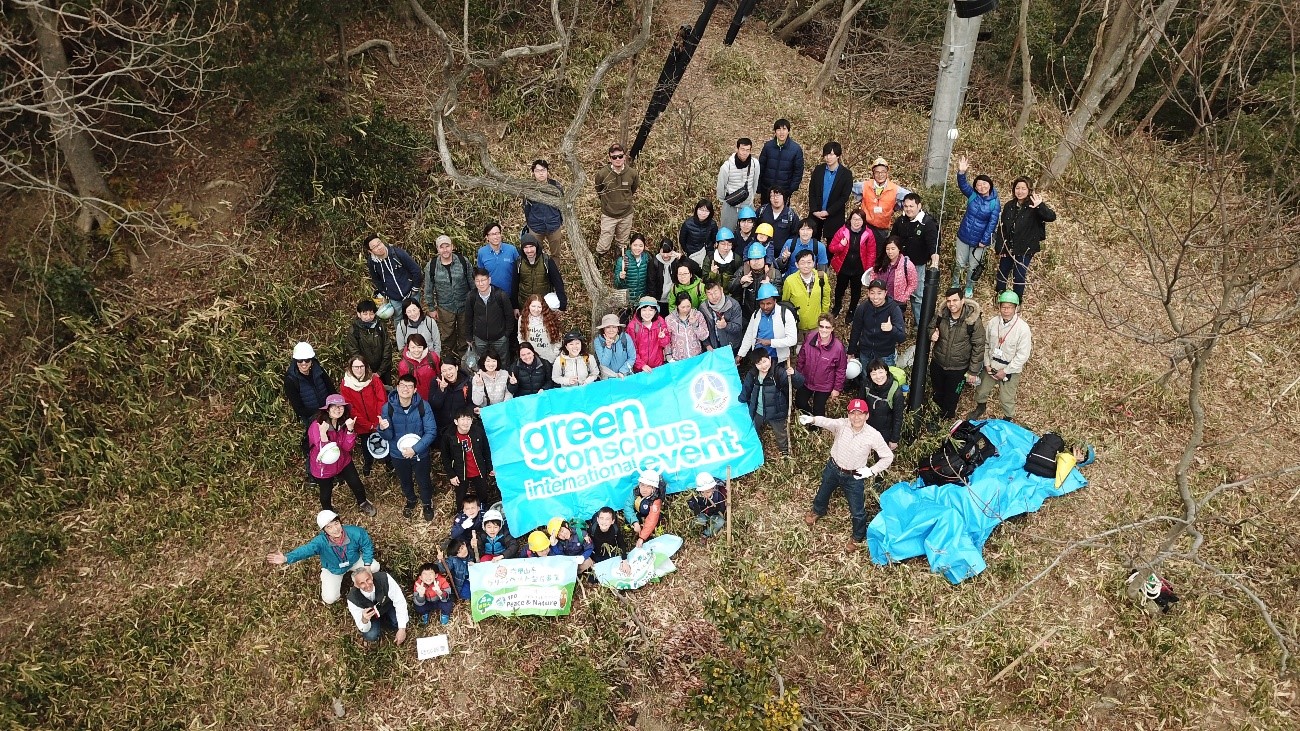 |
Forest yoga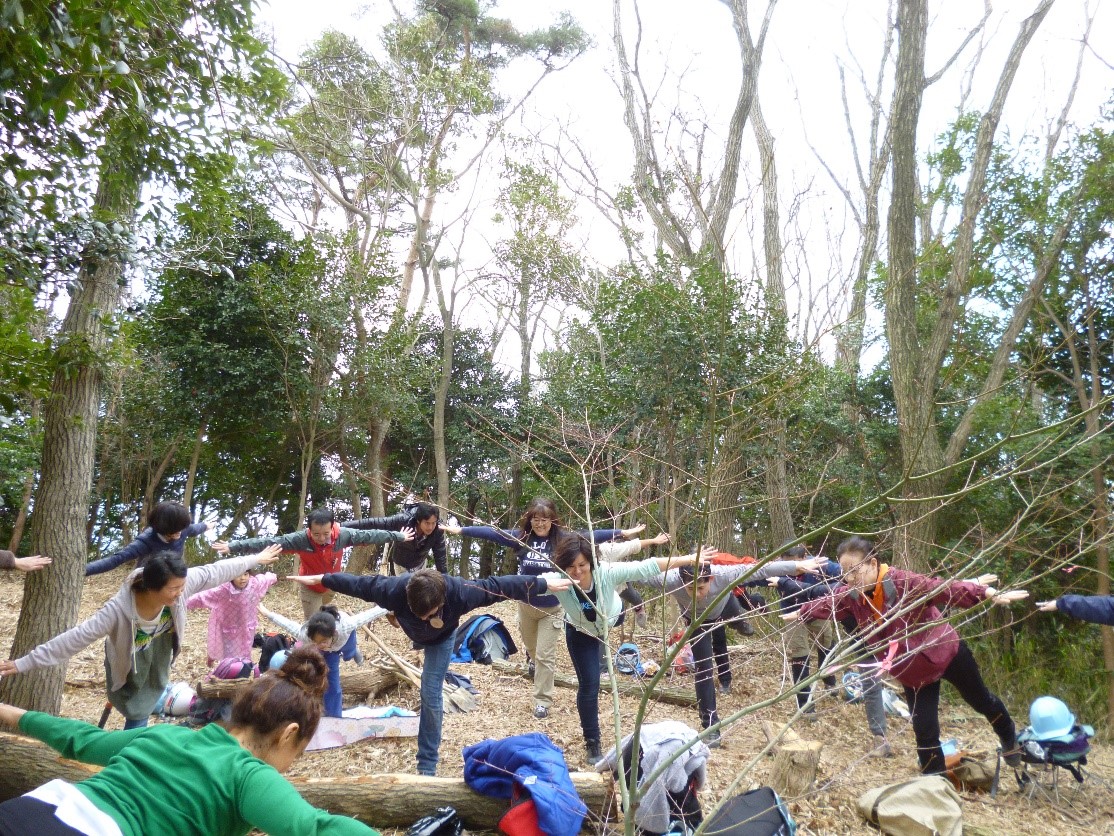 | 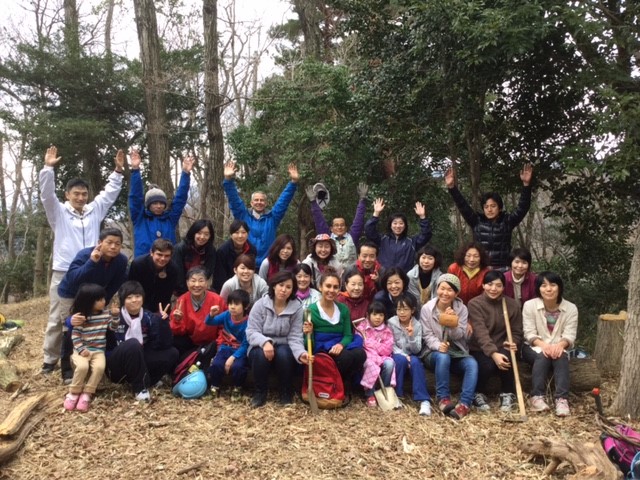 |
Click here for activity reports on Mountain Activity
Ozo Base Renovation
This vacant farmhouse had been abandoned for a long time, and the shed and storehouse had deteriorated significantly. We demolished these unusable portions and are renovating damaged areas. Next, we plan to build an open kitchen and shower room. This house will be reborn as a location to experience traditional Japanese food culture and a home base for our events.
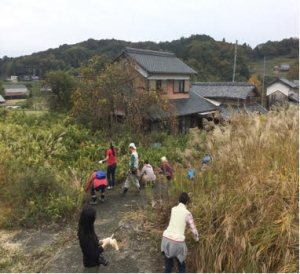 | 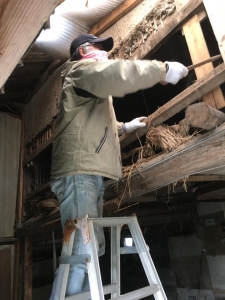 | 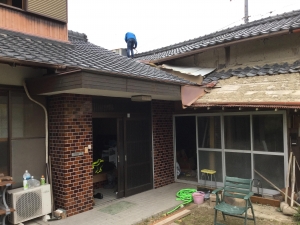 |
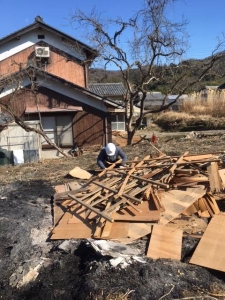 | 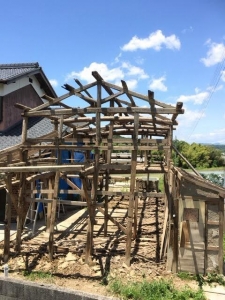 | 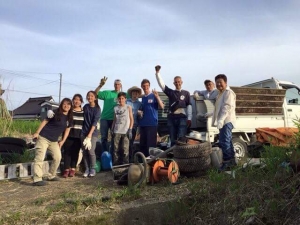 |
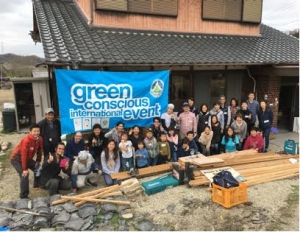 |
Click here for activity reports on Ozo Base Renovation
Human Development
Wellness Camp
Peace & Nature organizes wellness camps as one of our Human Development programs.
Yoga in nature, farm work, cooking with fresh vegetables from our organic garden, getting away from our daily lives and realizing our own power and strength: we coordinate this program to become well and healthy.
A message from Ms. Purvi, our Yoga teacher!
I firmly believe that one should put oneself out in the raw every now and then. As much as I enjoy the comfort of my bed, there is a different charm of being in the open. Staying close together with flashlights as we go out at night and help each other! With clothes that are simply comfortable (mix n match), barefoot or sneakers or slippers, no make up and no fancy and frills. Just you and your enthusiastic spirit and curiosity for life!
You come back home with a part of you even more empowered and nurtured. You bring back a whole lot of experience that makes you a better and stronger person than you were yesterday.
Abundance Wellbeing Studio
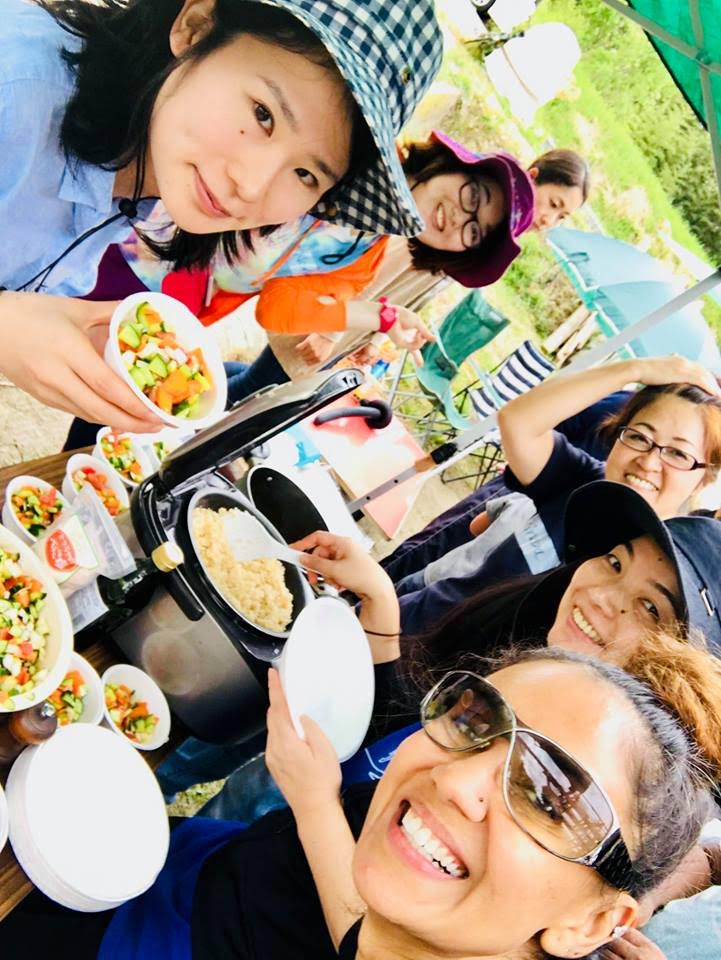 | 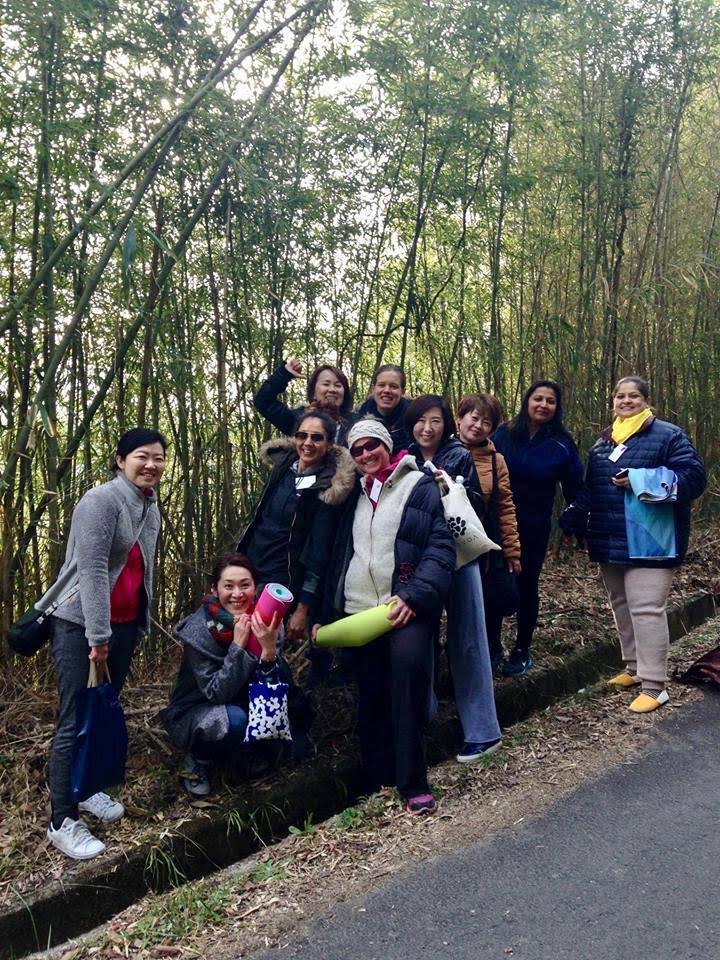 | 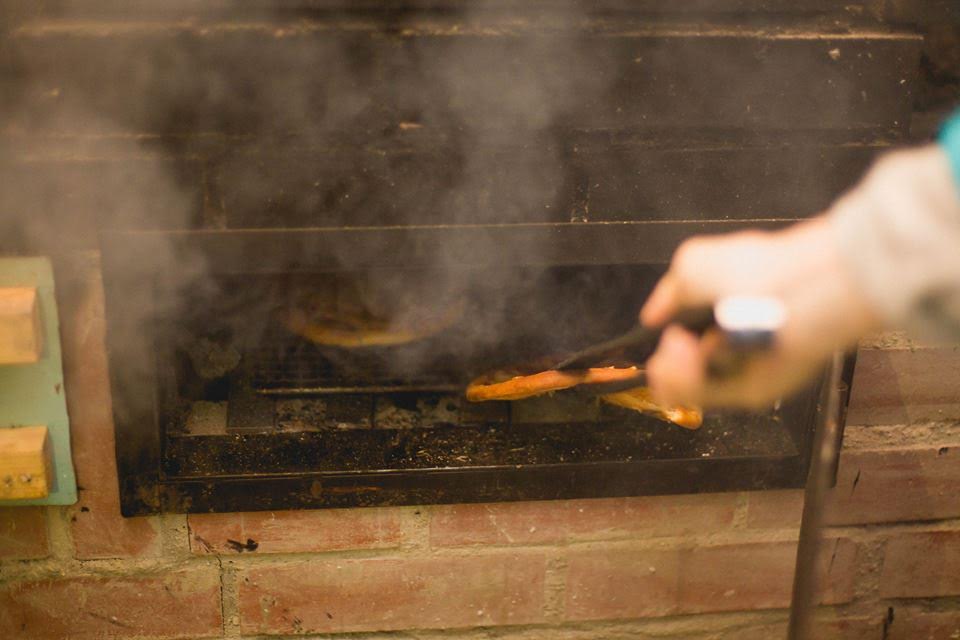 |
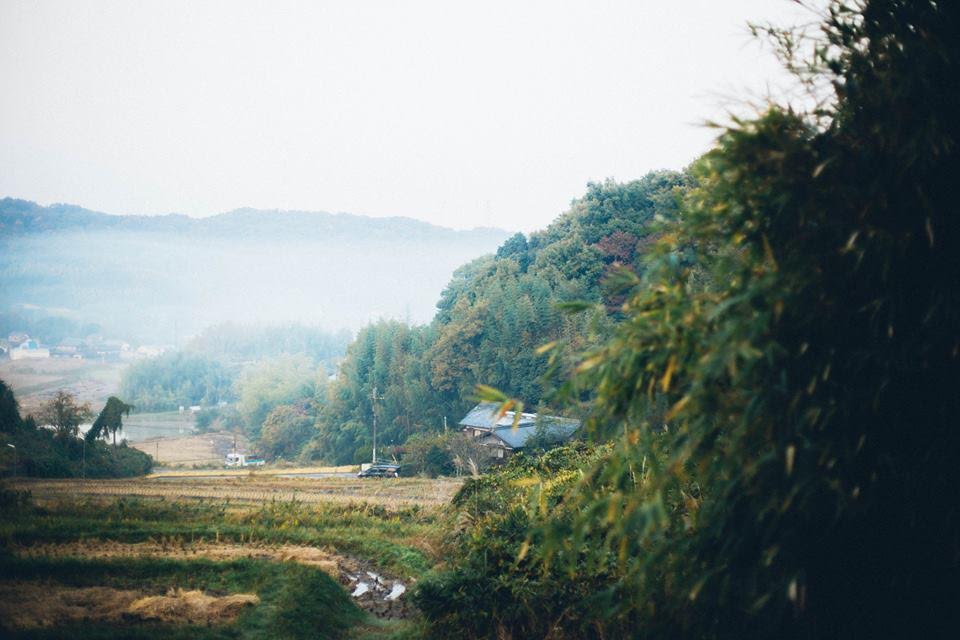 | 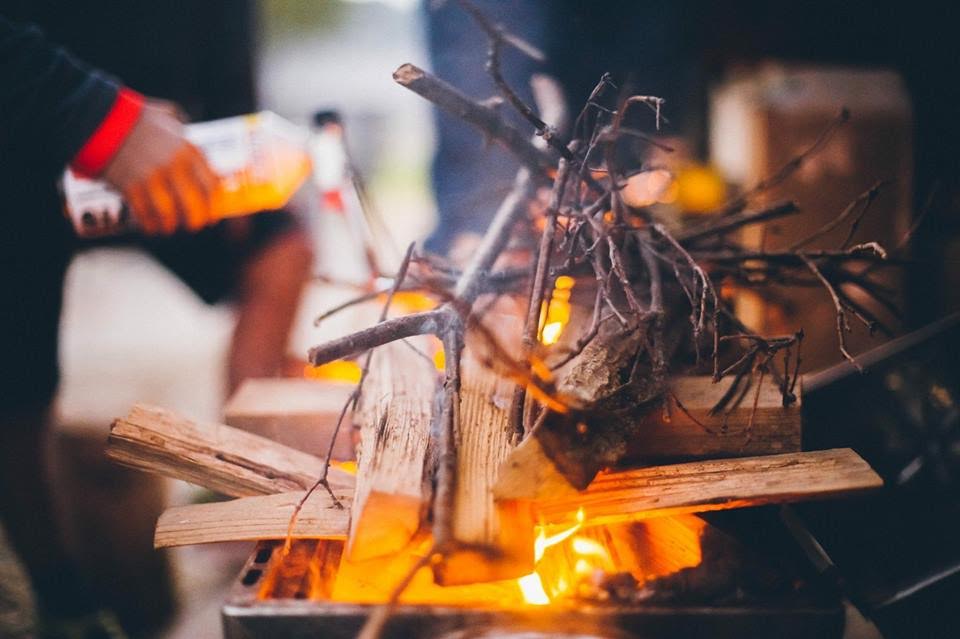 | 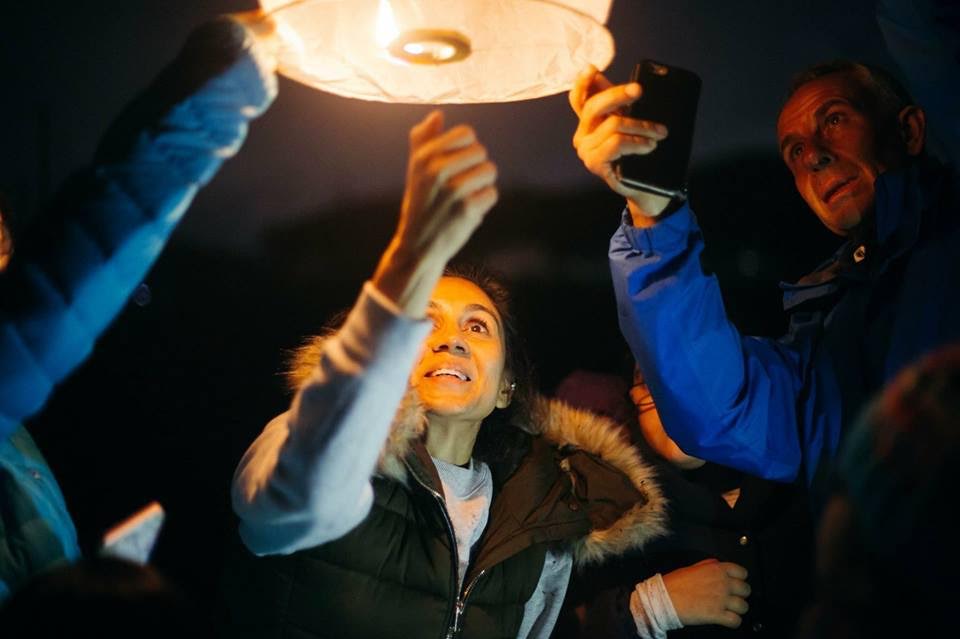 |
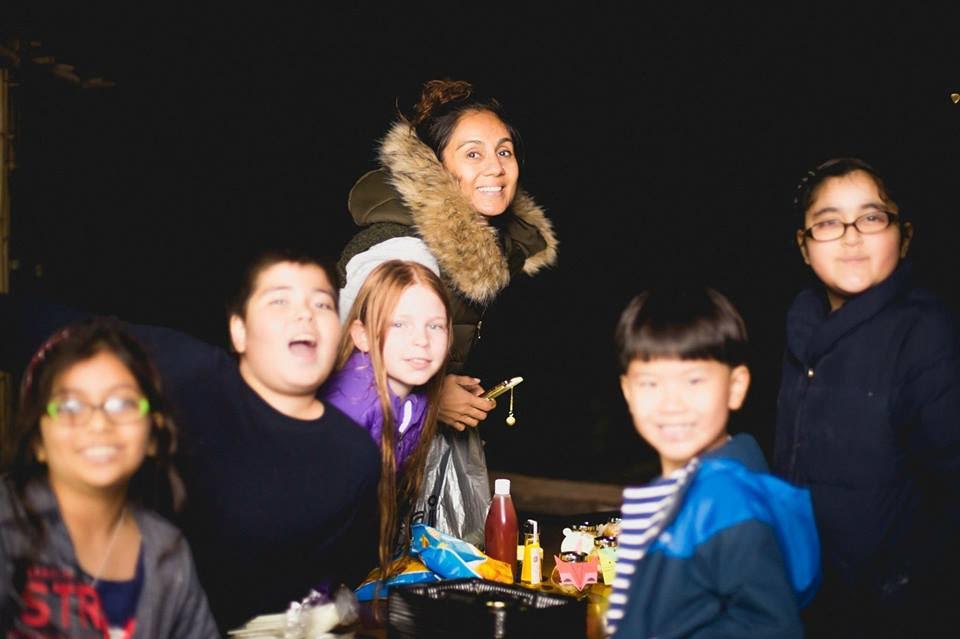 |
Click here for activity reports on Wellness Camp
Zazen
At Peace & Nature, we practice Zazen meditation as one of our Human Development programs.
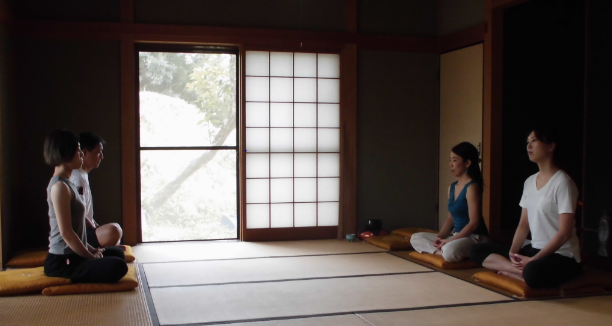 |
In Zazen, your slow and deep breathing gradually warms up your body, and you come to feel moments of ease. The regulated breathing of Zazen has been shown to 1.) help you relax using alpha brain waves, and 2.) lead to brain stimulation due to the release of serotonin. We encourage you to try this experience and master the breathing techniques for use during your work and daily life.
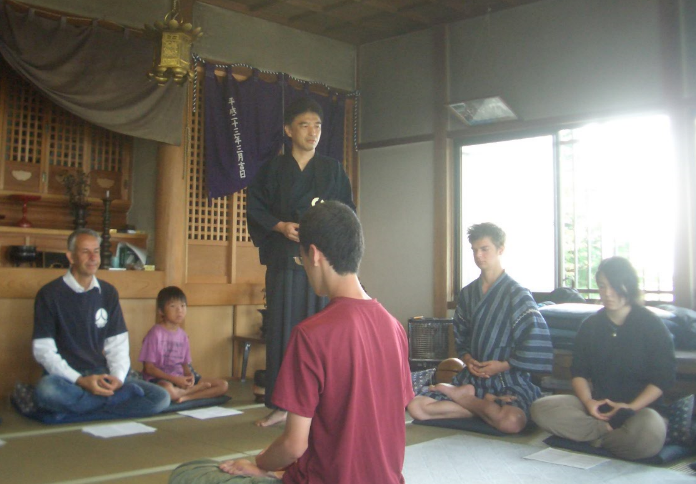 |
We will also teach Zen sayings that contain life wisdom, such as “Reidan Jichi” (learning through direct experience) and “Jiri Rita” (helping others helps oneself).
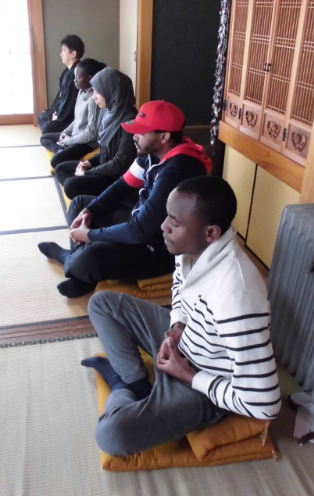 |
Young people from countries around the world participate in our Zazen workshops. We hope these young people will take a role protecting the future of the earth.
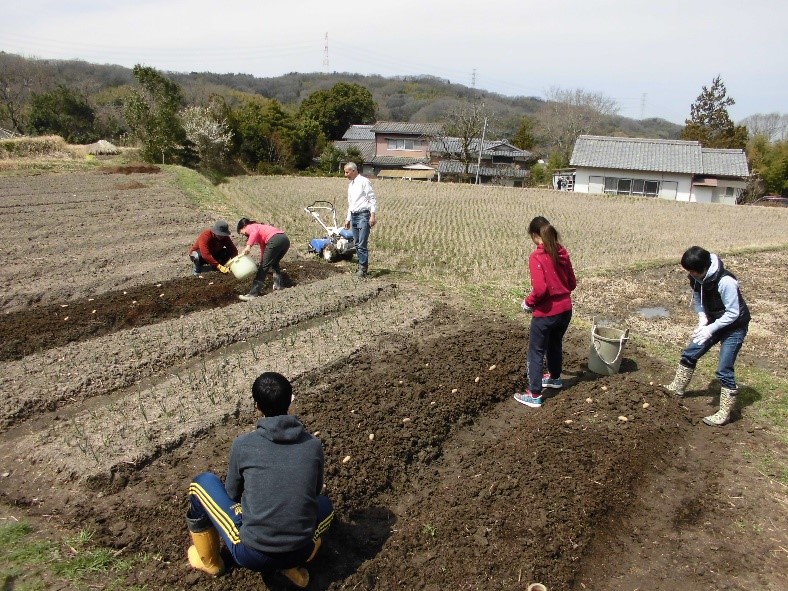 |
Our Zazen workshops include “Samu” – cleaning and farming work as part of Zen training. Enjoy the scenic farmland sights, calls of wild birds, and scent of the fields, grasses, and soil and hone your senses during this physical work in the natural environment.
Click here for activity reports on Zazen
Student’s Project & Internship
The P&N university student team was formed in collaboration with Kobe Social Campus, an organization that coordinates extracurricular activities for students. Many motivated students have participated and volunteered in our events, but until now, we had no system to build a long-term collaboration with them. Thanks to Kobe Social Campus, a special P&N student action team has now been formed. Last year, they planned and ran the Farmhouse Renovation DIY Workshop, which attracted 40 participants. This year, they are working on creating a high school student volunteer program and fundraising for the DIY costs of renovating our farmhouse. Rather than passively participating in our events, these students are taking the lead in creating programs in an opportunity for proactive learning and development. P&N and Kobe Social Campus are working together to support these students’ growth.
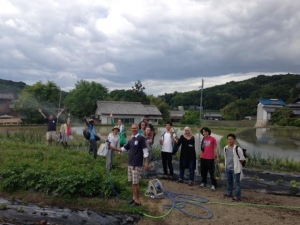 | 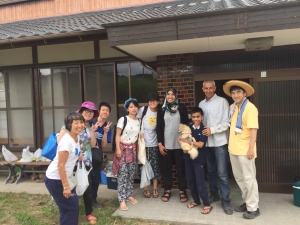 | 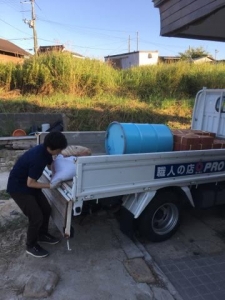 |
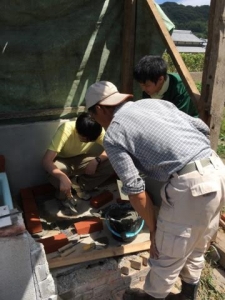 | 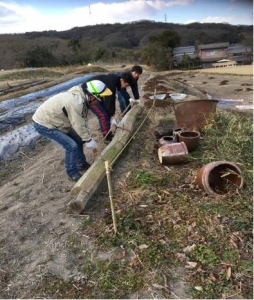 | 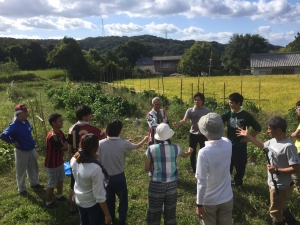 |
Click here for activity reports on Student’s Project & Internship
Regional challenges and challenges:
- Regenerate fallow fields and promote agriculture that does not use pesticides to create safe food.
- Japan has the lowest self-sufficiency rate among developed countries, and we hope that young people and foreigners will become more involved in agriculture, which will then lead to the promotion of agriculture in the future.
- Bamboo, which is increasing in the area, is cut down and the bamboo is powdered and reused as fertilizer.
